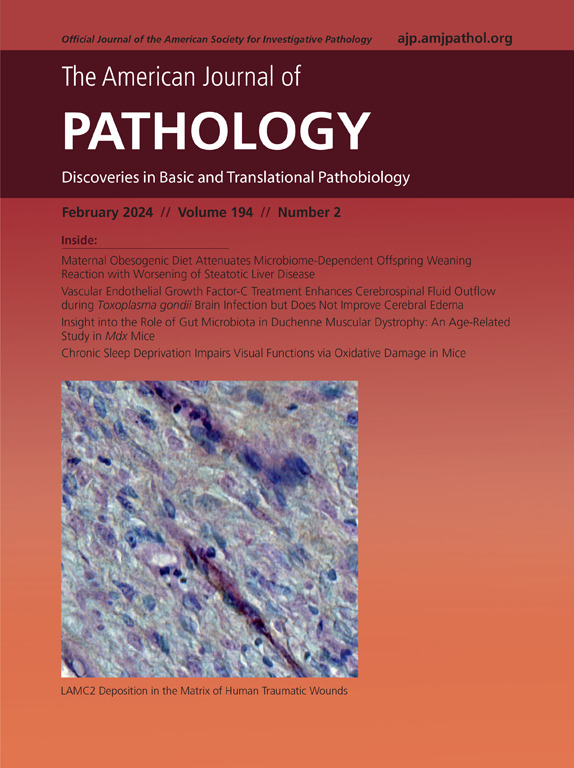Single-Cell Advances in Investigating and Understanding Chronic Kidney Disease and Diabetic Kidney Disease
IF 4.7
2区 医学
Q1 PATHOLOGY
引用次数: 0
Abstract
Chronic kidney disease (CKD) and its subset diabetic kidney disease are progressive conditions that affect >850 million people worldwide. Diabetes, hypertension, and glomerulonephritis are the most common causes of CKD, which is associated with significant patient morbidity and an increased risk of cardiovascular events, such as heart failure, ultimately leading to premature death. Despite newly approved drugs, increasing evidence shows that patients respond to treatment differently given the complexity of disease heterogeneity and complicated pathophysiology. This review article presents an integrative approach to understanding and addressing CKD through the lens of precision medicine and therapeutics. Advancements in single-cell omics technologies and artificial intelligence can be leveraged to explore the intricate cellular mechanisms underlying CKD and diabetic kidney disease pathogenesis. Dissecting the cellular heterogeneity and identifying rare cell populations using single-cell approaches will facilitate uncovering novel therapeutic targets and biomarkers for personalized treatment strategies. Finally, we discuss the potential of artificial intelligence–driven analyses in predicting disease progression and treatment response, thereby paving the way for tailored interventions.
评论:研究和了解慢性肾病和糖尿病肾病的单细胞进展。
慢性肾脏病(CKD)及其亚型糖尿病肾病(DKD)是影响全球 8.5 亿多人的渐进性疾病。糖尿病、高血压和肾小球肾炎是导致慢性肾脏病的最常见原因,而慢性肾脏病与患者的严重发病率和心血管事件(如心力衰竭)的风险增加有关,最终导致患者过早死亡。尽管新近批准了一些药物,但越来越多的证据表明,由于疾病的异质性和病理生理学的复杂性,患者对治疗的反应各不相同。本综述论文从精准医学和治疗学的角度,介绍了一种理解和解决慢性肾功能衰竭问题的综合方法。利用单细胞全息技术和人工智能(AI)的进步,我们可以探索 CKD 和 DKD 发病机制背后错综复杂的细胞机制。通过使用单细胞方法剖析细胞异质性和识别罕见细胞群,我们将有可能发现新的治疗靶点和生物标志物,从而制定个性化治疗策略。最后,我们讨论了人工智能驱动的分析在预测疾病进展和治疗反应方面的潜力,从而为量身定制的干预措施铺平道路。
本文章由计算机程序翻译,如有差异,请以英文原文为准。
求助全文
约1分钟内获得全文
求助全文
来源期刊
CiteScore
11.40
自引率
0.00%
发文量
178
审稿时长
30 days
期刊介绍:
The American Journal of Pathology, official journal of the American Society for Investigative Pathology, published by Elsevier, Inc., seeks high-quality original research reports, reviews, and commentaries related to the molecular and cellular basis of disease. The editors will consider basic, translational, and clinical investigations that directly address mechanisms of pathogenesis or provide a foundation for future mechanistic inquiries. Examples of such foundational investigations include data mining, identification of biomarkers, molecular pathology, and discovery research. Foundational studies that incorporate deep learning and artificial intelligence are also welcome. High priority is given to studies of human disease and relevant experimental models using molecular, cellular, and organismal approaches.

 求助内容:
求助内容: 应助结果提醒方式:
应助结果提醒方式:


